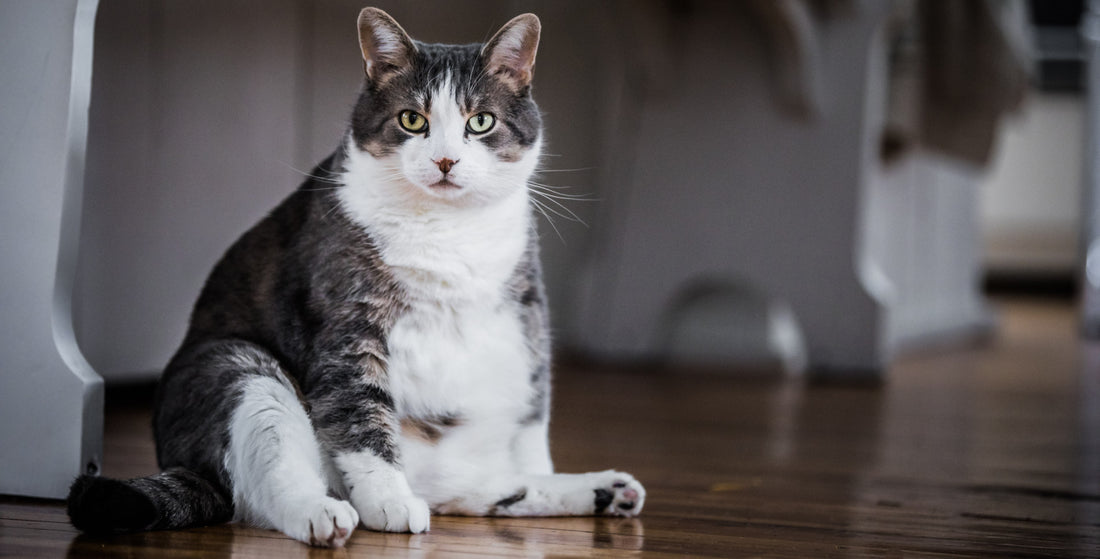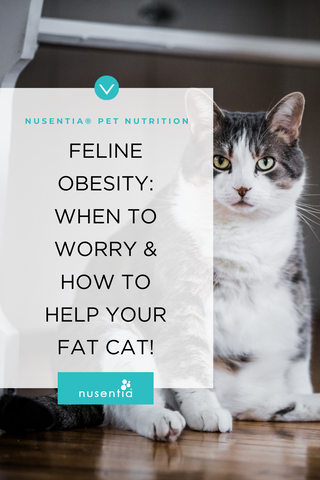Adorable as they may be, feline obesity presents a critical health issue among cats, attracting increasing concern from veterinarians and pet nutritionists. In an innovative approach to tackle this problem, experts have been exploring the potential of probiotics to regulate food intake and support weight loss in cats.
Probiotics are widely recognized for their beneficial effects on health, especially for enhancing gastrointestinal (GI) functions. Beyond their traditional use for improving bowel health, probiotics are now being applied to manage diarrhea and chronic GI disorders effectively.
Recognizing Obesity in Cats
A cat is considered obese if its weight exceeds 20% of the normal average. Veterinarians regularly encounter this issue and stress its serious implications on a cat's health. Owners should be vigilant and not dismiss the seriousness of their cat's obesity, regardless of how endearing they may appear.
Related: Pet Obesity: 4 Mistakes Made by Owners of Fat Pets
Obesity significantly detracts from a cat's quality of life, limiting their physical activity and predisposing them to various health issues. Conditions such as feline osteoarthritis and urinary tract infections (UTIs) are particularly prevalent and detrimental among obese cats.
Health Risks Associated with Feline Obesity
Feline obesity can lead to numerous health concerns, including:
- Arthritis
- Cystitis (bladder inflammation or UTI)
- Hip dysplasia
- Diabetes Mellitus
- Cardiovascular issues
Arthritis, distinct from osteoarthritis, arises from inflammation and can be a direct consequence of prolonged obesity, leading to debilitating joint pain. Similarly, cystitis, a frequent affliction in overweight cats, often manifests as painful UTIs.
An overweight cat may also suffer from hip dysplasia, a condition where the femoral head fails to fit snugly into the hip socket, adversely affecting the cat’s mobility and quality of life. Additionally, Diabetes Mellitus, characterized by inadequate insulin production or response, is common in obese felines, as are various cardiovascular disorders.

Factors Contributing to Obesity in Cats
Several factors can predispose cats to obesity, including a sedentary lifestyle and excessive sleep, particularly in indoor cats who lack adequate physical stimulation. Neutered or spayed cats are also at a higher risk of gaining weight, with neutered males being more susceptible than their female counterparts. While neutering or spaying is essential for responsible pet ownership, it's important to be aware of its potential impact on your cat’s weight.
Addressing Cat Obesity with Probiotics
To combat feline obesity, nutritionists have explored the efficacy of probiotics in a study involving 20 cats. The findings indicated that probiotics not only reduce food intake but also enhance metabolic profiles and facilitate weight loss, mirroring results observed in similar studies conducted on mice and humans. By integrating a high-quality probiotic supplement like Probiotic Miracle® into their diet, you can offer your cat numerous health benefits. This includes an improved immune system and better weight regulation, alongside enhanced gastrointestinal health, especially when combined with a balanced diet and active lifestyle.
Conclusion
In summary, helping your fat cat lose weight involves understanding the risks associated with obesity, recognizing the contributing factors, and considering innovative solutions such as probiotics. By ensuring your cat has a healthy diet, sufficient exercise, and the added support of probiotics, you can significantly improve their quality of life and health. Remember, a proactive approach to managing your cat's weight not only addresses current health issues but also prevents future complications, ensuring your furry friend enjoys a longer, happier life.
Visit Nusentia for natural, trusted pet health supplements with proven formulas to improve your furry friend's overall health. A trusted brand by veterinarians and pet parents since 2008.





